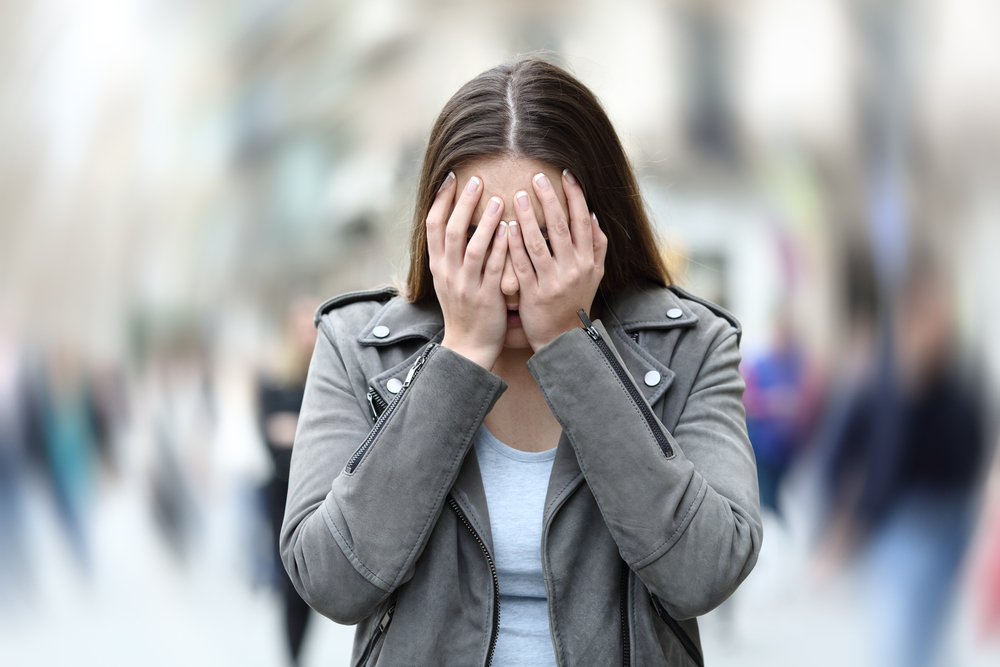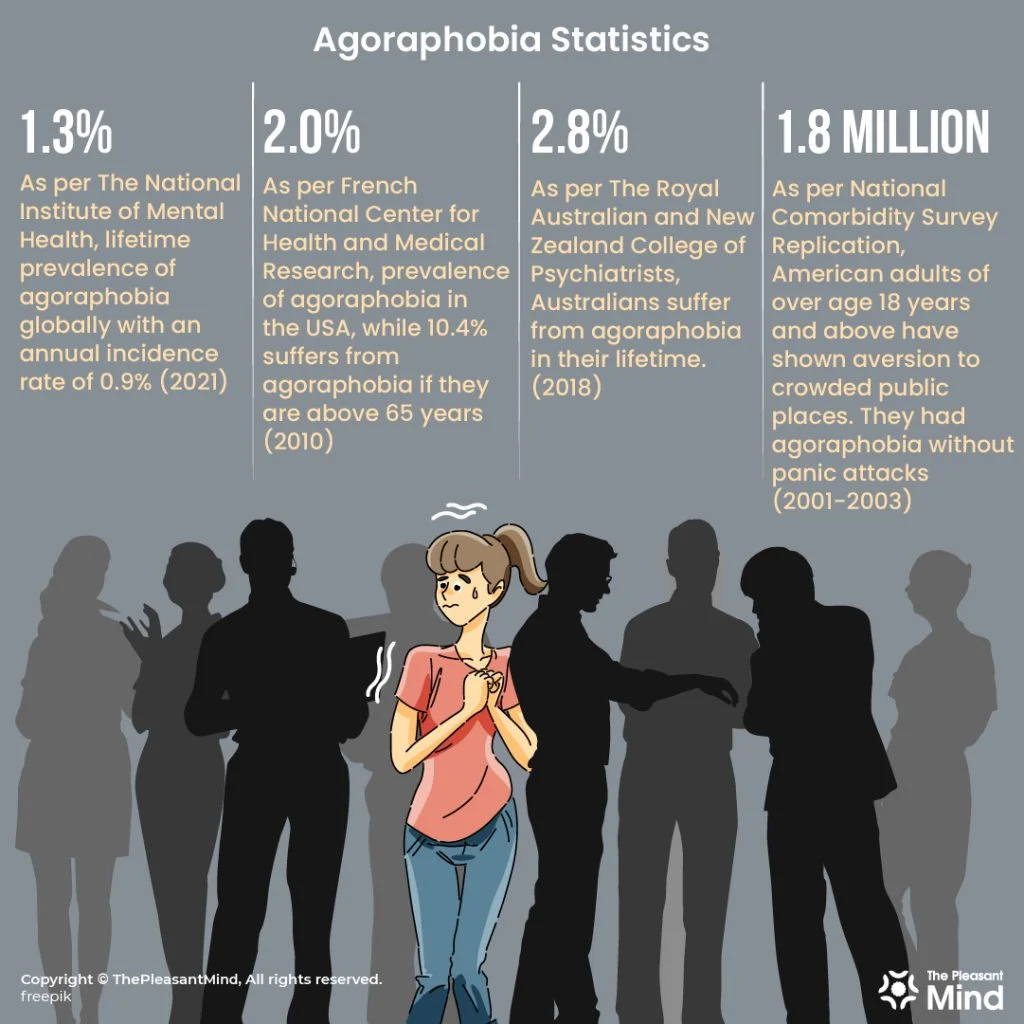
Key facts
- Agoraphobia is a fear of being in certain situations that may be hard to leave, or where support may not be available.
- It leads to avoidance of these places or situations.
- Agoraphobia is an anxiety disorder that is common in people who have panic disorder and panic attacks.
- Agoraphobia can impact your quality of life and prevent you from doing things.
- Treatments like cognitive behavioural therapy are available to help you manage and overcome agoraphobia.
What is agoraphobia?
Agoraphobia is a type of anxiety disorder where a person fears having a panic attack in certain places — like public transport, crowds or queues — or situations from which escape is difficult.
It is normal to sometimes feel anxious, but anxiety becomes a disorder if it interferes with daily life. Anxiety disorders such as agoraphobia can seriously restrict a person’s ability to go to work or socialise with friends and family.
What are the symptoms of agoraphobia?
Agoraphobia is a type of phobia and often goes together with panic disorder.
Symptoms of agoraphobia include:
- experiencing anxiety or panic attacks in situations where escape might be difficult, such as on public transport, in large crowds or in open or enclosed spaces
- avoiding these situations because of fear of having a panic attack
- agreeing to go to these places but only if you go with someone
What causes agoraphobia?
Agoraphobia often begins with a stressful event, such as loss of a job or relationship. The stressful event might lead a person to avoid the outside world. Over time, this avoidance grows to include more and more places.
The stressful event might also trigger a panic attack. Panic attacks are very distressing, so the person may begin to avoid any situation that could trigger another attack.
You are more likely to experience agoraphobia if you have a family history of agoraphobia or anxiety, if you have anxiety, or if you have experienced a panic attack in the past.
When should I see my doctor?
If anxiety is affecting your daily life, talking to a doctor or a mental healthcare professional is the first step to getting the right support and understanding the options for treatment.
You should talk to your doctor if:
- you experience severe and recurrent anxiety (such as several panic attacks)
- you are so worried about how you will feel when you do certain activities that it affects how you live your life
How is agoraphobia diagnosed?
Your doctor will ask you about your symptoms. Often they will use a detailed questionnaire to do this. The more detailed answers you can give about what you are experiencing, the better.
Your doctor might also do some tests of your thinking (psychological tests) and a physical check-up to make sure there is not another problem that is making you feel this way.
How is agoraphobia treated?
Anxiety disorders such as agoraphobia do not usually go away by themselves, but effective treatments are available. These include:
- medication such as antidepressants
- psychological therapy such as cognitive behaviour therapy (CBT) and exposure therapy
- education and counselling
- relaxation training
With the right support, information and treatment, most people with agoraphobia find that their symptoms improve, or they recover completely.



